Are you trying to decide whether hearing aids are right for you? Or are you looking for a provider that suits your vibe? You must have a lot of questions.
To get you started, you will find answers to some frequently asked questions about hearing aids and the devices we can provide below. If you are looking for information about something more specific, please contact us.
Click on the + beside each question to show the answer.
Hearing aids are small, ear-worn devices that sit discretely inside the ear canal or behind the ear. They are programmed to amplify sounds in the range of your hearing loss safely and comfortably, by providing more gain for softer sounds, and limiting output for louder sounds to a safe level (known as compression).
With advances in digital signal processing, hearing aids are continuously improving their ability to ‘clean up’ the incoming sound to assist you to focus on the sounds you want to hear in complex or noisy environments. Most current models also have Bluetooth connectivity, so you have the option to connect to a range of compatible devices to listen to TV, take phone calls, or enjoy music, making everyday tasks easier and more enjoyable.
There are several signs of hearing loss in your everyday life that indicate you may benefit from hearing aids. The best way to know for sure is to have a hearing assessment and discuss your hearing concerns with an Audiologist. If a hearing loss is identified during your appointment, your results will help to determine what type of management you would benefit from. Hearing aids may be recommended for one or both ears if you have an aidable degree of hearing loss. The type of hearing aid recommended will depend on your results, your listening needs, and your preferences.
Selecting the right hearing aid(s) to suit your hearing needs and lifestyle can seem overwhelming in the face of all the options and information available. Your audiologist is here to help you find the right solution for your hearing needs.
You will need an appointment with your audiologist for a comprehensive hearing assessment and discussion of your options before you have any devices fitted. Before your appointment, think of the main situations in which you would like to hear better and discuss your hearing with close friends and family. Their insights and support is highly valuable along your hearing care journey.
After your hearing assessment, your Audiologist will make recommendations on the best style and technology to suit your individual circumstances, taking into careful consideration:
- the type and degree of your hearing loss;
- your listening needs;
- the physical condition and anatomy of your ear;
- your manual dexterity and visual ability;
- your cosmetic preferences; and
- your budget
You can take as much time as you need to consider these recommendations before making a selection. All hearing aid fittings are also subject to a 30-day trial to ensure they are meeting your needs.
Evergreen Audiology is a proudly independent hearing aid supplier, meaning we fit and service all leading hearing aid brands. We do not have any preferred supplier arrangements or incentive-based sales targets, which sets us apart from many audiology clinics that are owned by hearing aid manufacturers or large corporations.
For more information on hearing aids and accessories offered by our hearing aid suppliers, please follow the links below:
There is no one brand that is the best on the market (although they all claim to be). All hearing aid brands offer a product lineup that can accommodate any degree of aidable hearing loss at any technology level, however, each brand has their own proprietary sound, signal processing strategies and features that may suit some clients more than others. Having the option to choose from multiple brands increases your chance of finding the best hearing aid to suit your individual needs.
The cost of hearing aids is largely determined by the technology level of the device; however, significant variations in the price-to-consumer arise across different clinics as hearing aid pricing is not regulated in Australia. It’s important to choose a provider that will give you unbiased advice on technology available from all leading brands.
It also pays to check if you are eligible for Financial Assistance before proceeding with a hearing aid trial.
With proper care and maintenance, hearing aids have an expected lifespan of approximately 5 years. Like all electronics, exposure to dust, heat, and moisture can affect the life or quality of the aids, although some models are designed to be more durable. If your hearing aids become faulty after 5 years, it may still be possible to have them repaired but there is greater risk of parts becoming unavailable as the technology becomes obsolete. Many people choose to upgrade their hearing aids around this time to take advantage of the improvements in technology that roll out every couple of years.
Hearing aids typically come with a 3 year repair warranty (excluding some parts such as custom shells). Most brands also have 1-2 year extended warranty options that can be purchased at the time of ordering the devices. If your hearing aid becomes faulty or damaged, bring it in to be assessed. If it can’t be repaired in the clinic, we can send it to the manufacturer.
In the case that your hearing aids become lost or damaged beyond repair and require replacement, we recommend that you have your hearing aids insured with your private home and contents insurance provider.
Is it time to take the next step?
Our audiologist is always happy to answer your questions. Contact us to make an appointment.



